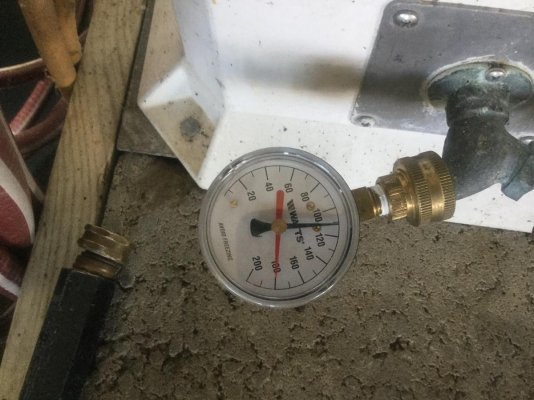Capt.Bill11
Guru
We have municipalities around here with high water pressure too. Wonderful invention those things called pressure regulators. Cheap and widely used.
If a garden hose will overpower your bilge pumps I pity the day you actually need yours. It's the first thing I made sure my pump could handle was a wide open hose in the bilge. Woulda never left the dock if it couldn't but that's just my standard.
As well as the fact that most water lines have valves on them which you can just turn down to lower the flow rate.



